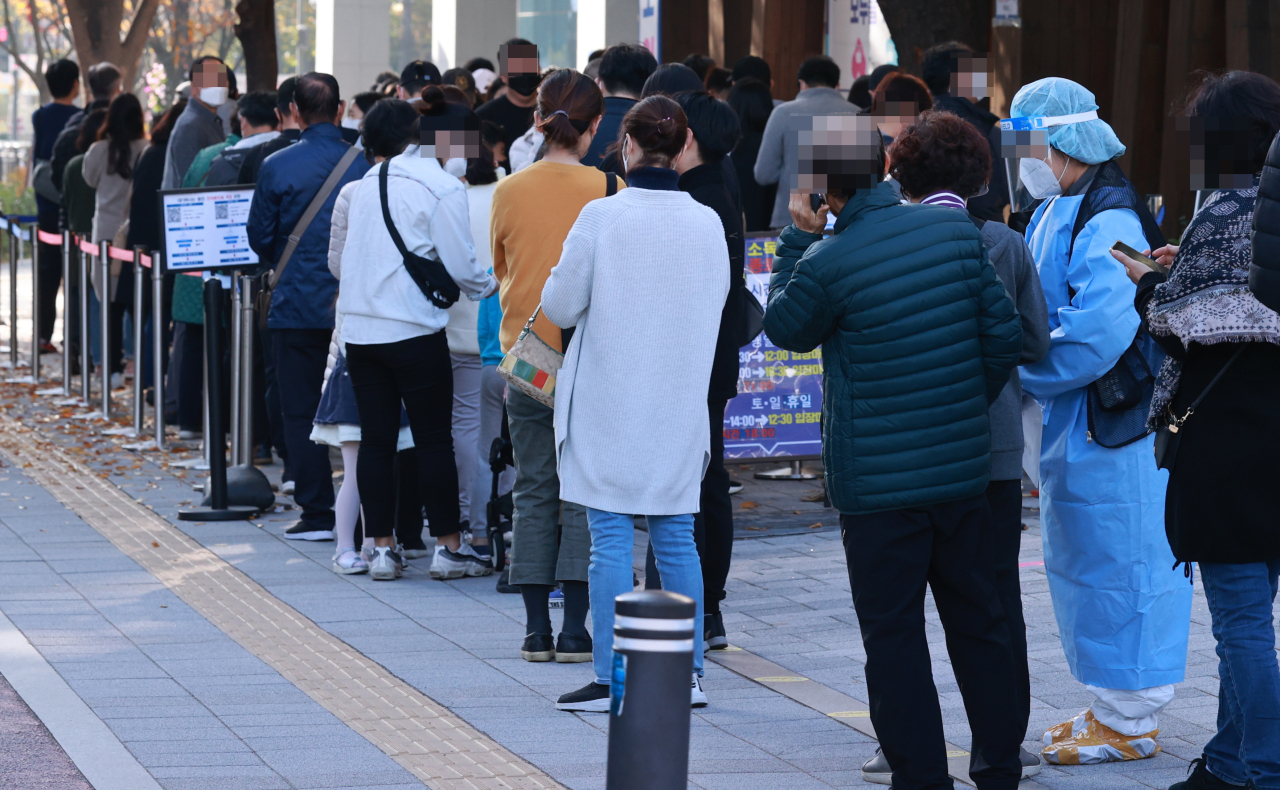 |
People stand in line to take coronavirus tests at a COVID-19 test center in Seoul on Sunday. (Yonhap) |
South Korea's new coronavirus cases bounced back to above 2,400 for the first time in six days Wednesday amid growing concerns over a resurgence of infections as the country began its "living with COVID-19" scheme last week.
The country reported 2,425 new COVID-19 cases, raising the total caseload to 385,831, the Korea Disease Control and Prevention Agency (KDCA) said. Wednesday's tally marked a sharp hike from 1,715 reported a day earlier.
The daily infection tally has stayed in the quadruple digits since July 7, including the record high of 3,272 cases on Sept. 25.Of the total, 2,409 were local infections, the KDCA said. Sixteen cases came from overseas, putting the cumulative total at 15,302.
Of the locally transmitted cases, Seoul had 967 cases, with the surrounding Gyeonggi Province logging 863 cases and Incheon, 40 kilometers west of Seoul, 159 cases.
The death toll rose by 14 to 3,012 on Wednesday, health authorities said. The fatality rate came to 0.78 percent.
The number of patients in serious or critical condition came to 460, up 35 from the previous day.
The health authorities warned there could be more cluster infections under the eased social distancing scheme meant to bring the country gradually back to pre-pandemic normalcy.
On Nov. 1, the government began its living with COVID-19 policy as part of a broader plan to lift the virus restrictions by the end of February.
Under the first of the three-phase scheme, people are allowed to gather in groups of up to 10, regardless of vaccinations. Still, basic preventive measures like wearing masks indoors remain in effect.
Operation hour curfews for businesses that cover restaurants, cafes and movie theaters are fully lifted, except for entertainment facilities.
High-risk facilities, such as bars and nightclubs, have introduced a "vaccine pass" system that requires visitors to be fully vaccinated or have a negative test result.
About 41.68 million people, or 81.2 percent of the country's 52 million population, had received their first COVID-19 vaccine shots as of Wednesday. The number of fully vaccinated people came to 39.62 million, or 77.2 percent. (Yonhap)








